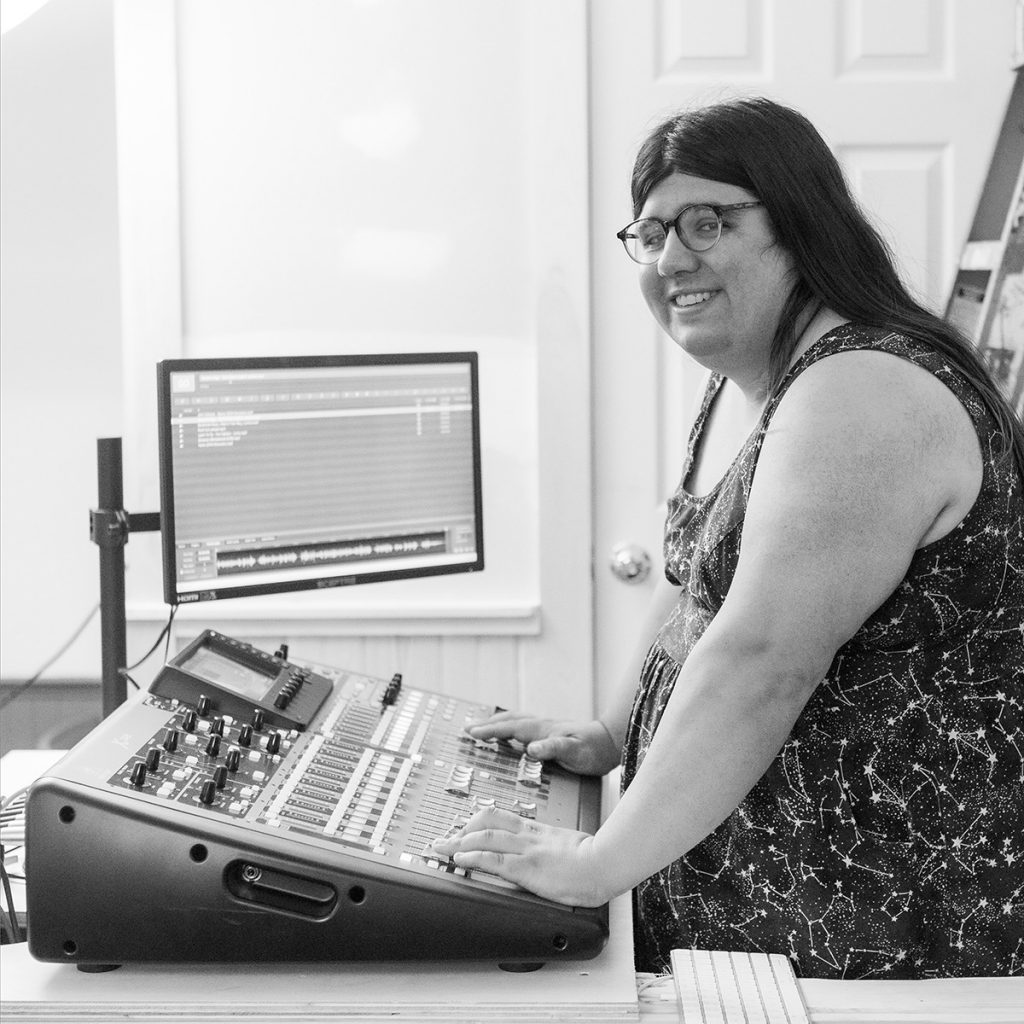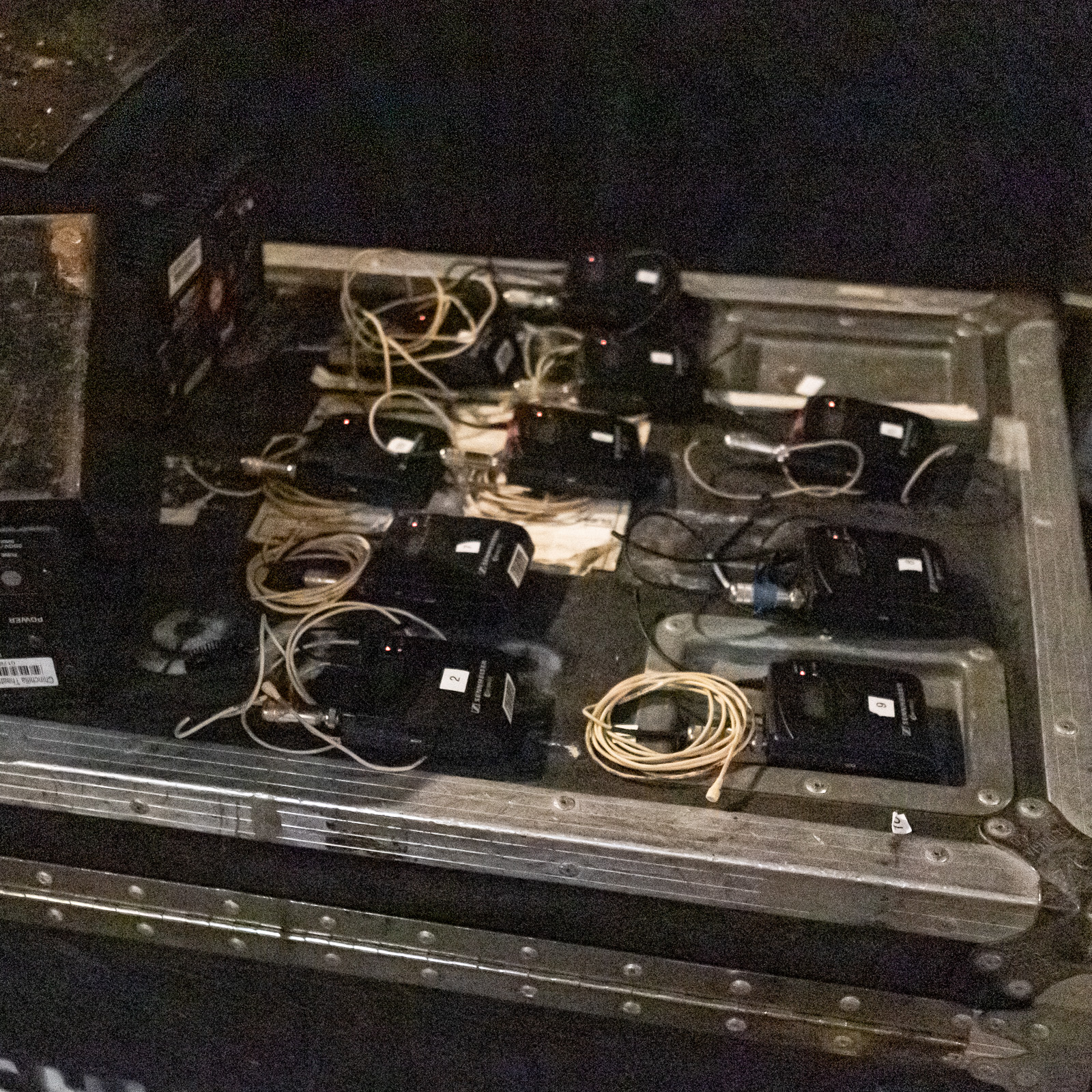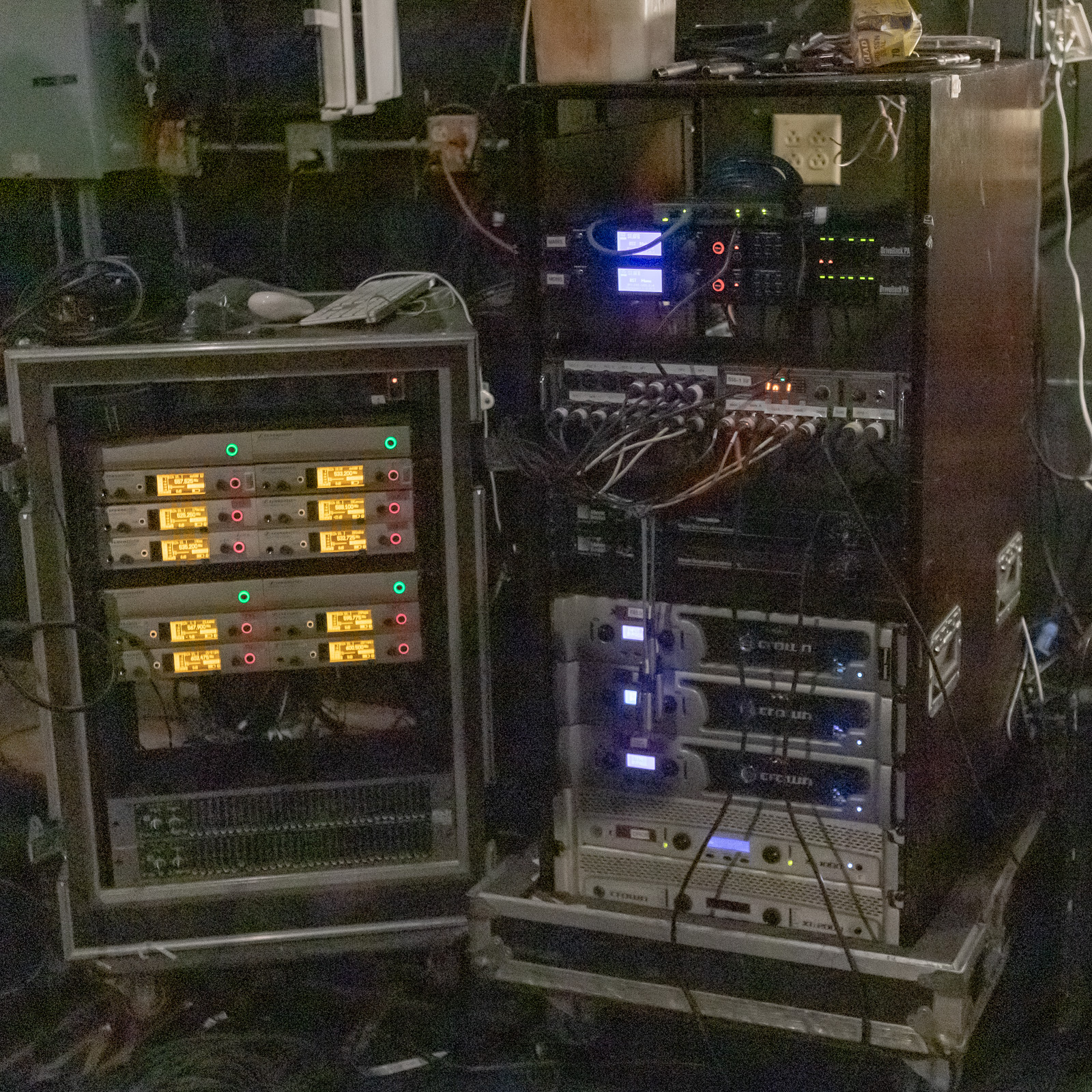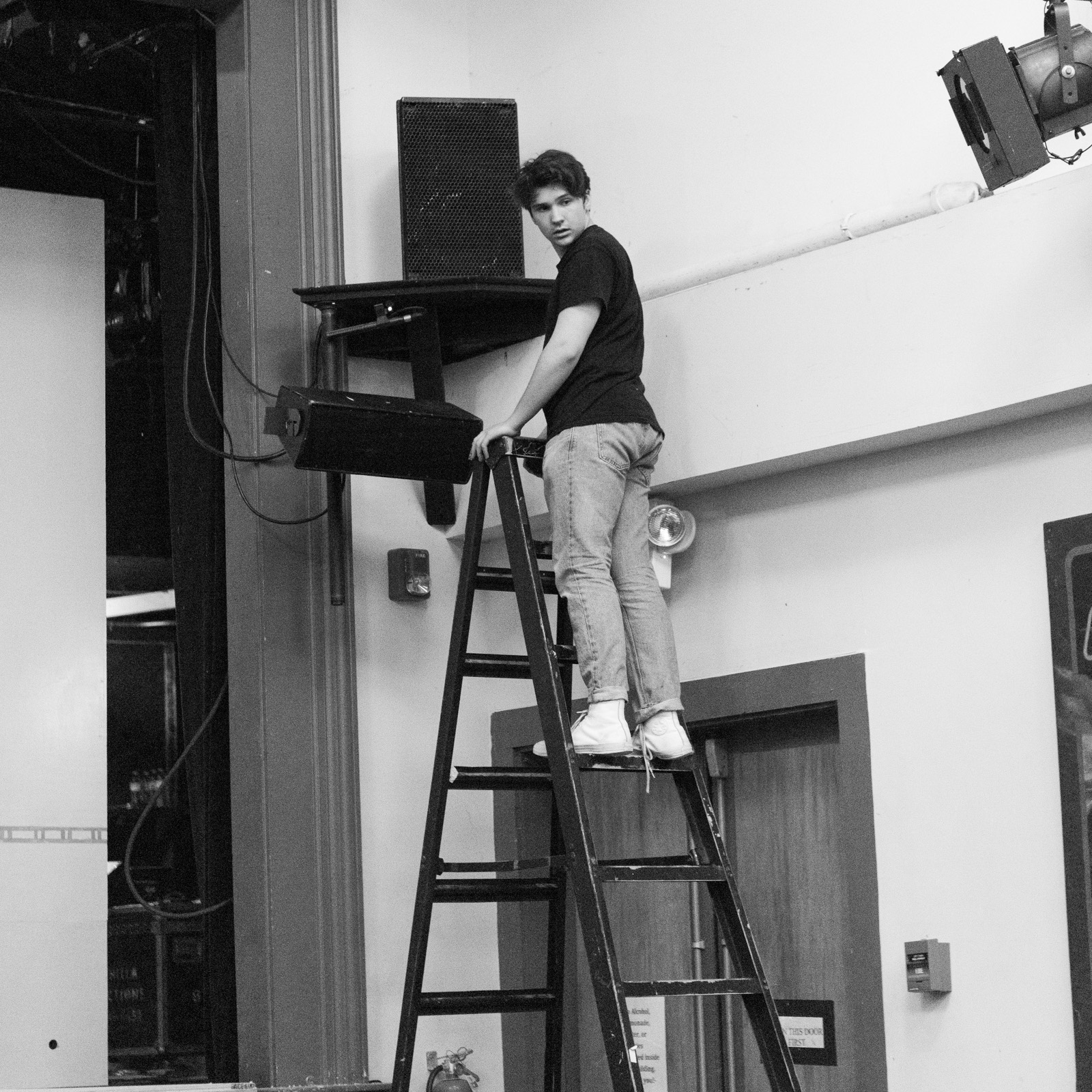Kimberly O’Loughlin: ”I am a sound designer, sound engineer and composer based out of New York City. I sound design plays and musicals off Broadway and for regional theater. I’m spending my summer as the sound designer for both Into the Woods and Lucky Stiff for the Barnstormers, and down in New York City at Little Island as head audio engineer for their 700 seat amphitheater.

I ended up at the Barnstormers in 2021—the former artistic director Joe Longthorne and I had worked together a number of times in New York, and at the New York musical festival, back when that was a thing. He called me up one day and said, “Hey, do you want to design a show called Popcorn Falls?” He put me in touch with [Director] Sarah Rozene, and the rest is history. She said, “Yeah, I’ll work with you.” So I came up here and started doing things. I also did the Waitress tour last year; I got a little bit of a crash course in The Barnstormers.
About the old sound system: it really harkens back to a day where unfortunately, we no longer are in musical theatre, and in theatre. Everything over the last 40 years has shifted towards using microphones and reinforcing sound, more than just playing sound effects. And it costs a lot of money. It takes time to set up, and so it’s not something that’s typically been done at the Barnstormers in the past. [The Barnstormers] largely relied on the power of the actor’s voices to get over the instrumentation during musicals. From stories I had heard last year, and talking to people is: it was hard to hear musicals. It was hard to understand everything that was going on, that the music was always beautiful, but sometimes the lyrics were just getting lost in the shuffle.
So I drew up a proposal to Sarah to take to the Board, and I said, “I would like to design a sound system, I need some money, and here’s what I think it’ll improve: I think that everyone will be able to hear the music and the lyrics and the musicals, I think that it’s going to support the actors better.” All the wonderful actors that come up and grace the stage, their voices get tired when they have to sing over the pit musicians and everything.
Unfortunately, musical theatre has moved away from unmiked actors. The way that people orchestrate the shows and write the music these days, and the way that we train our singers and train our actors in the conservatory and in the college programs—every step along the way has changed. We expect that there’s going to be a microphone on a performer if they’re in a theatre these days. It happens at community theatre, it happens at college, it happens in high school, it happens everywhere. When you have to perform without one, it’s more strenuous on the voice, and most theatres aren’t necessarily designed for that.
Musicals of the last 20 years aren’t orchestrated that way. And when I say orchestrated, I mean, there’s all this beautiful music that comes through and you hear these wonderful guitar parts and you hear these wonderful violin parts and you hear these wonderful trumpet and French horn parts in musicals that have come along. But if you think back to the days of classic musicals such as South Pacific—the main one I really like to use as an example. There’s a song in it, Nothing Like a Dame. It’s got this big, grandiose, beautiful entrance, beginning with all these horns and strings and a whole orchestra swells. And when people are singing, it goes down to dundun, dundun, dundun, dundun, dundun, dundun, dundun, dundun; on the piano, that was by design because the human voice can carry over a piano and it can carry over percussion, it can carry over a lot of instruments, but not guitars, not violins, not horns—those all sit in the same register as the human voice. So when they’re fighting against each other, nine times out of ten the instruments are gonna win. They can be louder. They usually are louder.
So my hope by installing this new speaker system and these microphones is that everyone’s going to get the same experience, if you’re sitting in the first seat, or if you’re sitting in the furthest seat of the balcony—that you’re going to get the same sound everywhere. Because those actor’s voices will be able to travel the whole distance of the room.
One of the goals for next season, whenever the capital is raised to continue the sound installation—not an inexpensive proposition: there’s still probably about $35,000 or more that’s needed to finish it. We were lucky to have a wonderful shop give us a really good deal on speakers and microphones, and all the things we need to make it happen that we couldn’t afford to purchase outright this year. I think that going forward, we’re going to get some grants, maybe some wonderful people will donate some money and help us towards this goal. Because I think it’s going to make the audience experience better. We can create more immersive sounds for plays; Evan Kelly is designing sound for Black Coffee and Silent Sky. He’s got this wonderful idea that’s going to really help you experience and feel what the actors are feeling on stage, and what the character is feeling on stage.
Good sound is such a hard thing to quantify. Bad sound is really easy to point out. You can walk into somewhere and say “That doesn’t sound right.” But when you walk out of somewhere and the sound is good, what you’re usually saying is, “Oh wow, those songs were great. Those harmonies are great, that guitar solo is great, that violin solo is great.” It’s just all these little pieces that your brain expects to be there. If you can’t hear them, you know it’s wrong. But if you do hear them, you just accept that it’s right. And you talk about these wonderful things that you’ve heard. That’s what I want the experience to be. I want people to be walking out of the theatre and say, “Did you hear what he sang in that song? Did you hear that joke that she made?” I want to hear the laughter of the audience where there’s supposed to be laughter. That’s usually the sign of good sound: if a joke is made, and no one laughs, it’s either a bad joke, or it’s bad sound.
This system is going to elevate the Barnstormers, the illustrious regional theatre that it is. In addition to summer stock, you can have more shoulder season events. You can have bands come here, you can have acts come here and feel supported like they would if they were at a venue in Boston or New York or Chicago. They can say, “Hey, we need some mics, we need these speakers, we need this console.” We now have the wonderful Behringer X32, some speaker systems, we will have a mic—it’s going to allow more things to happen in the theatre outside of the traditional theatre season.”




